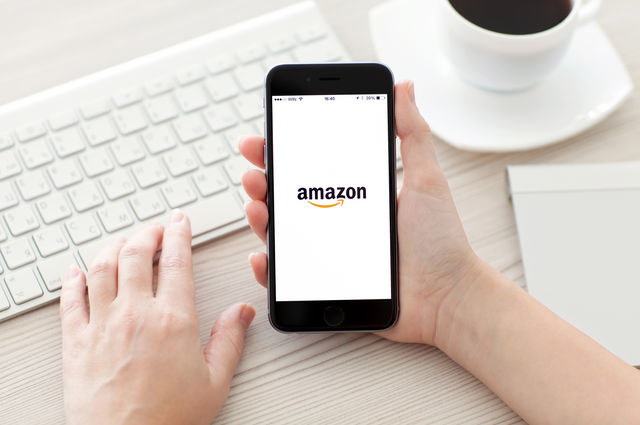Could Amazon become a major player in travel?
8 experts shared their view
For a second year in a row, Amazon Prime Day featured a few travel offerings, this time from big brands like Carnival Cruise Line, Tripadvisor's Viator and Southwest Airlines.
PhocusWire discusses this entry into the travel space by the e-commerce giant and rightfully asks: "What does the future of travel look like in relation to Amazon? Will the platform become a major player in the industry? And if so, in what form?"
What's your take?
With its massive traffic, incredible insights into customer behaviour, and powerful consumer brand, Amazon has the potential to disrupt practically any market it chooses to attack. However, travel may be the exception, with certain unique characteristics of the market likely to drive it to partner with one of the existing players rather than try to enter the market directly. Read on for more details......
Related article by Peter O’Connor
Amazon loves to explore new territories, and the travel industry is no exception. As a matter of fact, Amazon tried its hand in 2015 with Amazon Destinations (though it didn't last long). My take is that the best way for Amazon to become a major player in travel is through acquisitions. Grabbing established travel companies would give Amazon the tech, infrastructure, and expertise to take on the big guys. In my opinion, Expedia stands out as a prime target. With strong B2B and B2C systems, it would arm Amazon with the tech and know-how to break into the travel market smoothly. Picture Rufus, Amazon's generative AI-powered shopping assistant, trained with Expedia's data: the travel booking experience would be seamless for Amazon's massive customer base. Imagine booking flights, hotels, and rental cars on Amazon, earning Prime rewards. Another option is Trivago. Its stock has nosedived by 96.46% since the IPO, making it a "cheap" acquisition for Amazon. TripAdvisor is also an option, with its stock now worth less than a fifth of its value from a decade ago. In conclusion, Amazon's financial muscle is undeniable. With a market cap of around $1.87 trillion, these conversations are, at least, a possibility...
Today Amazon has approximately 200 million Amazon Prime members globally. To put this into perspective, if Amazon Prime was a country, it would be the 8th biggest in the world measured by population.
With this enormous membership size, or 'captive audience', Amazon has the necessary market reach to monetize any travel-related product or service.
I laughed at first when I saw this topic, as I recall vividly having had this discussion in the past. In fact, I wrote a blog post titled Will You Book Your Next Hotel on Amazon?... back in 2014!!
Amazon did indeed tip its toes into travel distribution but the journey was short-lived. That was then, this is now. So what's different ten years later? From a travel distribution perspective, not much has changed, with dominant players such as Expedia and Booking, Trip.com and various hotel bedbanks.
More importantly, Amazon is no longer just a place to shop for books and electronics - we can find anything and everything on its platform, including movies and series when subscribing to Prime.
Will the platform become a major player in the industry? The potential remains as strong as it was back in 2014, perhaps even more. Amazon can certainly become a player in the travel and hospitality sphere. But a strong player? Seems to me this is a niche perhaps too complex for a big company such as Amazon, that thrives on standardization and scalability, which are not prevalent in our industry where 80% of businesses are small and medium organizations.
It becomes evident that Amazon has been testing the water for the last two years. Don't forget that besides e-commerce, Amazon is also in cloud computing, AI, digital marketing, and other businesses. As a supplier, Amazon has already provided IT infrastructures and solutions to airlines, hotels, resorts, restaurants, and relevant hospitality businesses. On the retailer side, Amazon also has rich consumer data about their purchasing and spending behaviors. The global travel and tourism industry is enormous, as measured in trillions. It is too big to be ignored. However, I wonder if Amazon wants to build an OTA or a new travel marketplace from scratch. Likely, acquiring an existing OTA is much easier if Amazon finally decides to enter the market.
67% of internet users in the US have an Amazon Prime subscription. With its vast customer base, powerful e-commerce platform, and data-driven approach, it"s easy to see why the audience on Amazon is an appealing distribution channel for travel and hospitality. We have seen traditional retailers moving into hospitality over the last few years: Costco Travel and Walmart Plus Travel both being high profile examples of retail giants using their platforms for member-exclusive travel. The biggest advantage I see for Amazon, beyond a commission-based model, is the first party customer data it provides. Think of the ability to personalize ads and suggested products in the lead up to a trip: luggage, travel accessories, clothing, etc. This gives an advantage to Amazon that other retailers cannot replicate. Due to the complexity and fragmented nature of travel and hospitality my belief is Amazon is most likely to expand their travel offerings to Prime members in a similar way to Costco Travel but will stop short of challenging the "big two" OTAs. So expect more brand partnerships during Prime Day and Cyber Monday that extend beyond cruises and airlines, most likely into branded hotels before it reaches independent hotels as a sales channel.
The only two scenarios where I can picture Amazon becoming a major player in travel are:
- Partnering with a travel provider to offer their Prime members broader travel benefits
- Acquiring a significant travel brand.
Amazon's success has been built on providing customers with fast shipping and broad selection, powered by its logistics network. Its logistics advantages, however, offer the e-commerce giant no benefit at all in the travel space. Travel providers — and guests — don't need warehouses, fast delivery, or free shipping.
And, given the significant number of travel businesses using AWS, including Choice, Wyndham, Hyatt, Airbnb, Expedia, Priceline, and United Airlines, it seems like Amazon's already "in the travel industry" in a way that best matches its strengths. In short, apart from the two cases already mentioned, I struggle to see how Amazon — and travelers — benefit from a more meaningful entry into the travel space.
Amazon missed their one and only chance to enter the travel space by not acquiring Orbitz or Travelocity when these OTAs were for up for grabs. Now it is too late - the consolidation In the travel intermediary space has already happened. Unless Amazon acquires Expedia with its $18.5 billion market cap, I don't see Amazon entering the travel space organically, though many hoteliers would love to have another player in addition to the current OTA duopoly Booking-Expedia. Two main reasons why Amazon will not become a major player in travel... here's my take...
Related article by Max Starkov








